Mercedes E Class vs Land Rover Range Rover Velar - Differences and prices compared
Compare performance (585 HP vs 404 HP), boot space and price (50500 £ vs 61900 £) at a glance. Find out which car is the better choice for you – Mercedes E Class or Land Rover Range Rover Velar?
Costs and Efficiency:
Price and efficiency are often the first things buyers look at. Here it becomes clear which model has the long-term edge – whether at the pump, the plug, or in purchase price.
Mercedes E Class has a distinct advantage in terms of price – it starts at 50500 £, while the Land Rover Range Rover Velar costs 61900 £. That’s a price difference of around 11395 £.
Fuel consumption also shows a difference: Mercedes E Class manages with 1.50 L and is therefore significantly more efficient than the Land Rover Range Rover Velar with 4.80 L. The difference is about 3.30 L per 100 km.
As for range, the Mercedes E Class performs decisively better – achieving up to 116 km, about 53 km more than the Land Rover Range Rover Velar.
Engine and Performance:
Under the bonnet, it becomes clear which model is tuned for sportiness and which one takes the lead when you hit the accelerator.
When it comes to engine power, the Mercedes E Class has a clearly perceptible edge – offering 585 HP compared to 404 HP. That’s roughly 181 HP more horsepower.
In acceleration from 0 to 100 km/h, the Mercedes E Class is noticeable quicker – completing the sprint in 4 s, while the Land Rover Range Rover Velar takes 5.40 s. That’s about 1.40 s faster.
There’s no difference in top speed – both reach 250 km/h.
There’s also a difference in torque: Mercedes E Class pulls a bit stronger with 750 Nm compared to 650 Nm. That’s about 100 Nm difference.
Space and Everyday Use:
Beyond pure performance, interior space and usability matter most in daily life. This is where you see which car is more practical and versatile.
Both vehicles offer seating for 5 people.
In curb weight, Mercedes E Class is somewhat lighter – 1810 kg compared to 2003 kg. The difference is around 193 kg.
In terms of boot space, the Land Rover Range Rover Velar offers hardly perceptible more room – 552 L compared to 540 L. That’s a difference of about 12 L.
When it comes to payload, Mercedes E Class barely noticeable takes the win – 640 kg compared to 587 kg. That’s a difference of about 53 kg.
Who comes out on top?
Overall, the Mercedes E Class shows itself to be outperforms in nearly all aspects and secures the title of DriveDuel Champion.
It convinces with the more balanced overall package and proves to be the more versatile choice for everyday use.
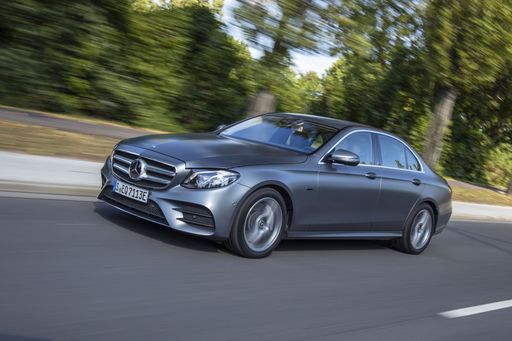
Mercedes E Class
Costs and Consumption
View detailed analysis
Engine and Performance
View detailed analysis
Dimensions and Body
View detailed analysis
Mercedes E Class
The Mercedes E‑Class is the executive saloon that balances calm refinement with a hint of sporting intent, wrapping luxury in tasteful understatement. It pampers occupants with a composed ride and intuitive tech while quietly reminding you that it’s still very much a Mercedes — authoritative, polished, and unwilling to shout for attention.
details
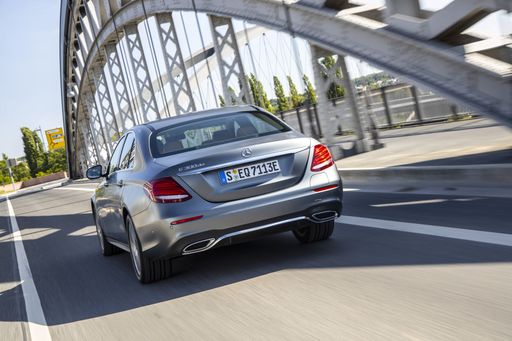
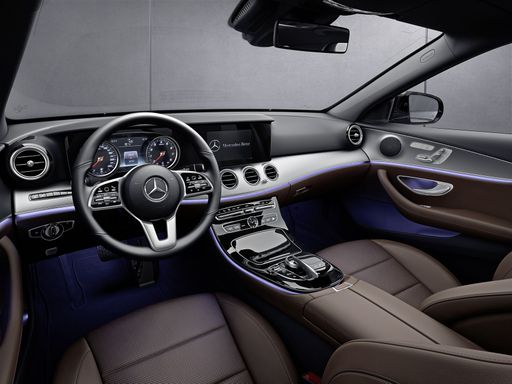
Land Rover Range Rover Velar
The Range Rover Velar marries sleek, pared-back styling with genuine off-road poise, so it looks at home in the city yet won’t flinch at rougher roads. Inside, a luxurious, tech-forward cabin pampers occupants while keeping the driving experience confidently in command — and yes, it somehow makes an SUV feel undeniably chic.
details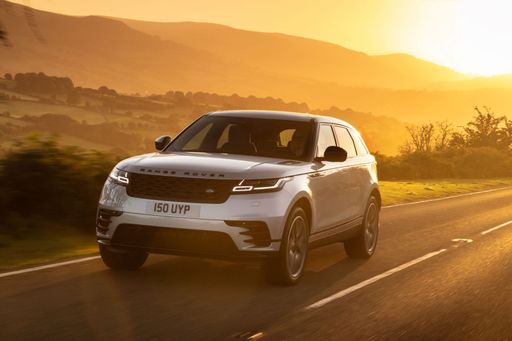
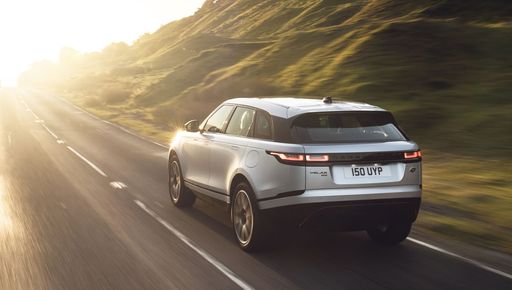
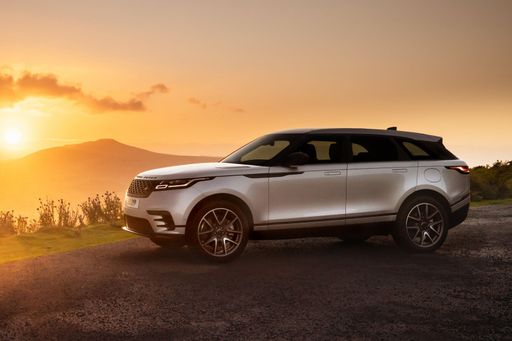
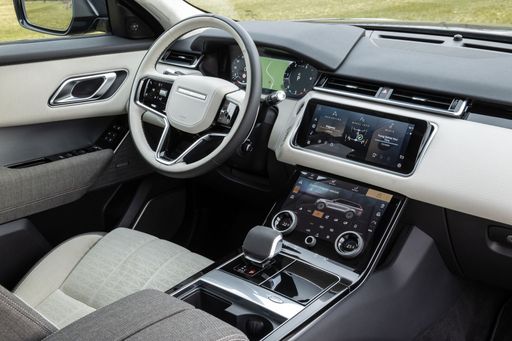

|

|
|
|
|
Costs and Consumption |
|
|---|---|
|
Price
50500 - 119700 £
|
Price
61900 - 87400 £
|
|
Consumption L/100km
1.5 - 7.5 L
|
Consumption L/100km
4.8 - 10.2 L
|
|
Consumption kWh/100km
-
|
Consumption kWh/100km
-
|
|
Electric Range
101 - 116 km
|
Electric Range
63 km
|
|
Battery Capacity
21.20 kWh
|
Battery Capacity
15.40 kWh
|
|
co2
39 - 172 g/km
|
co2
110 - 232 g/km
|
|
Fuel tank capacity
50 - 66 L
|
Fuel tank capacity
62 - 83 L
|
Dimensions and Body |
|
|---|---|
|
Body Type
Sedan
|
Body Type
SUV
|
|
Seats
5
|
Seats
5
|
|
Doors
4
|
Doors
5
|
|
Curb weight
1810 - 2390 kg
|
Curb weight
2003 - 2280 kg
|
|
Trunk capacity
370 - 540 L
|
Trunk capacity
503 - 552 L
|
|
Length
4949 - 4959 mm
|
Length
4797 mm
|
|
Width
1880 mm
|
Width
1933 mm
|
|
Height
1468 - 1480 mm
|
Height
1657 - 1665 mm
|
|
Max trunk capacity
-
|
Max trunk capacity
1335 - 1358 L
|
|
Payload
530 - 640 kg
|
Payload
460 - 587 kg
|
Engine and Performance |
|
|---|---|
|
Engine Type
Petrol MHEV, Plugin Hybrid, Diesel MHEV
|
Engine Type
Petrol MHEV, Plugin Hybrid, Diesel MHEV
|
|
Transmission
Automatic
|
Transmission
Automatic
|
|
Transmission Detail
Automatic Gearbox
|
Transmission Detail
Automatic Gearbox
|
|
Drive Type
Rear-Wheel Drive, All-Wheel Drive
|
Drive Type
All-Wheel Drive
|
|
Power HP
186 - 585 HP
|
Power HP
204 - 404 HP
|
|
Acceleration 0-100km/h
4 - 8.5 s
|
Acceleration 0-100km/h
5.4 - 8.3 s
|
|
Max Speed
222 - 250 km/h
|
Max Speed
209 - 250 km/h
|
|
Torque
320 - 750 Nm
|
Torque
430 - 650 Nm
|
|
Number of Cylinders
4 - 6
|
Number of Cylinders
4 - 6
|
|
Power kW
137 - 430 kW
|
Power kW
150 - 297 kW
|
|
Engine capacity
1993 - 2999 cm3
|
Engine capacity
1997 - 2997 cm3
|
General |
|
|---|---|
|
Model Year
2024 - 2025
|
Model Year
2025
|
|
CO2 Efficiency Class
E, F, B, D
|
CO2 Efficiency Class
G, C
|
|
Brand
Mercedes-Benz
|
Brand
Land Rover
|
Is the Mercedes E Class offered with different drivetrains?
The Mercedes E Class is offered with Rear-Wheel Drive or All-Wheel Drive.
The prices and data displayed are estimates based on German list prices and may vary by country. This information is not legally binding.




